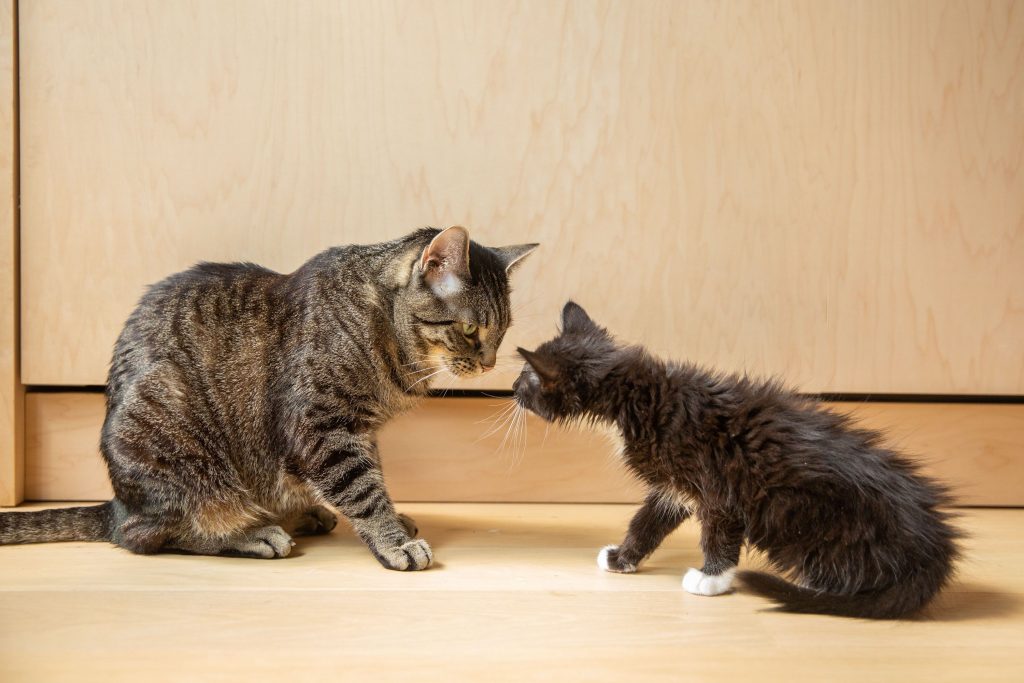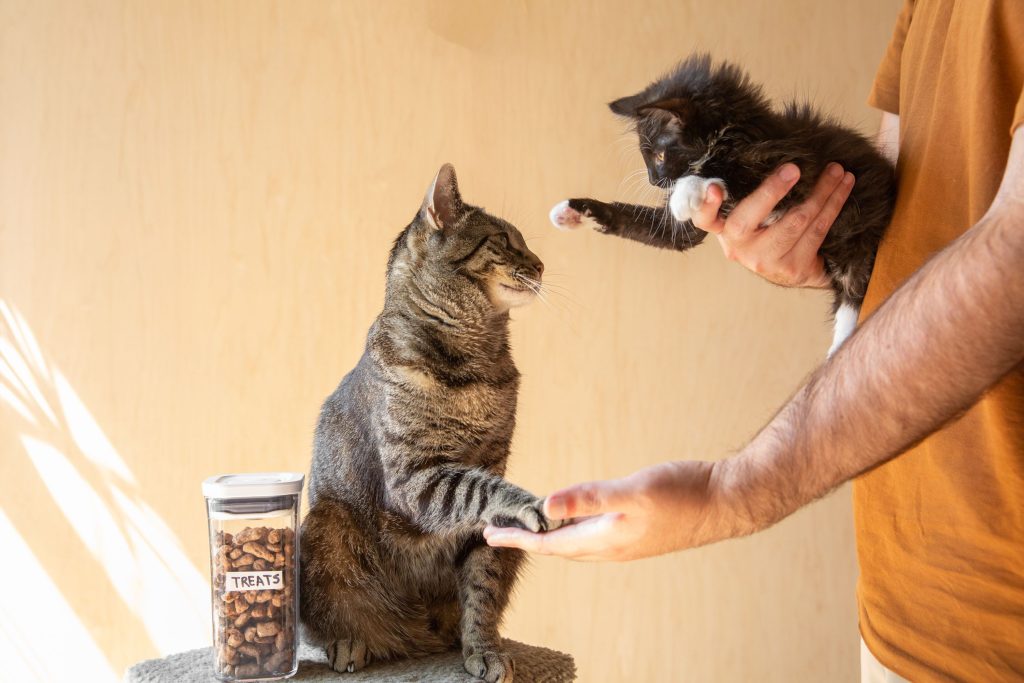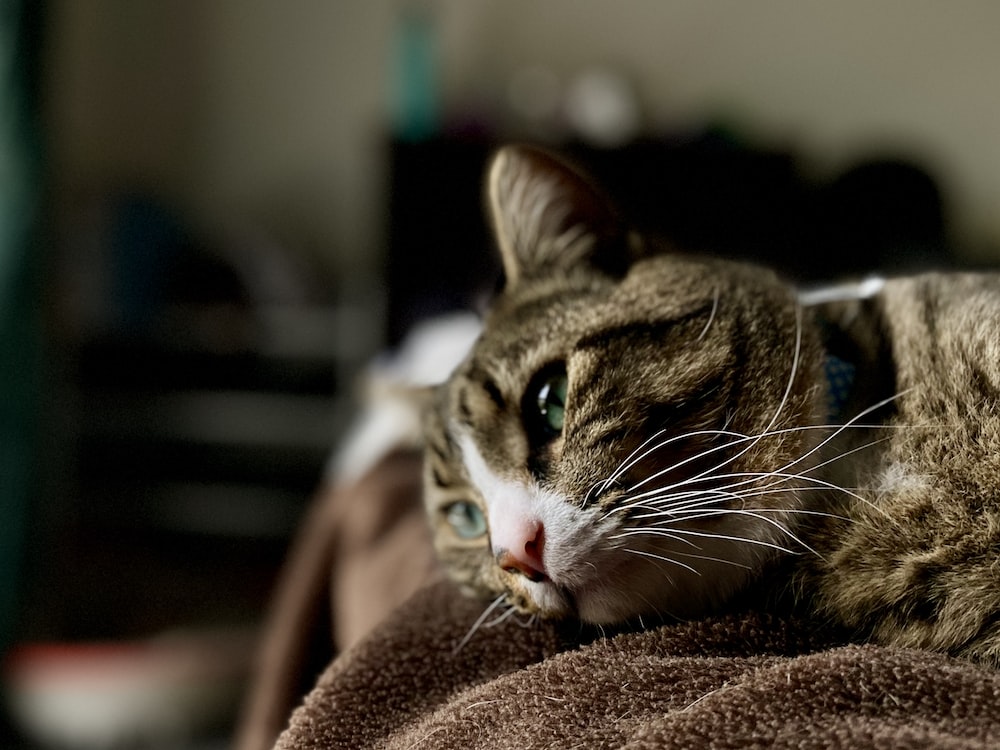When it comes to feline personality, nothing is written. The character of each cat is quite different, so it is possible to find shy and fearful cats, and others more curious, daring and adventurous.
If you have a cat at home, it’s probably not difficult for you to find out what your friend’s preferences are, how he reacts to certain situations and what his usual mood is. That’s why when something changes in your cat’s character, it’s time to review the possible causes that triggered such a change to address it.
Table of Contents
The character of the cat
As the cat grows, it is easy to notice what will be its final character. No two cats are alike, some like to be independent and spend most of their time alone, while others seek to be their human friends’ primary companion. Some are more affectionate, shy, grumpy, etc., and their reactions and moods can be predictable when they’ve spent some time at home.
This is why any sudden behavioral change in cats causes our perplexity, and it is often difficult to know what is motivating this behavioral change in cats. Thus, it is necessary to be attentive to the signs of possible change in behavior, such as: constant meowing for no apparent reason, aggressive cat, lack of appetite, melancholy attitude, nervousness, the cat avoids our contact, marking with urine , among others.
The above are just some of the signs that may indicate a change in behavior in cats, accompanied by a different mood than usual. There are several reasons that trigger this new behavior, so it is important to know them to know how to deal with them.

Heat period
Heat is a stage in the life of our cat, whether male or female, which triggers a sudden change in behavior in the cat. If this is the first time you have a cat as a pet, you will surely be surprised.
A male in heat sprays his urine on everything he finds to ward off potential rivals and mark his territory. Also, he is more eager to leave the house and becomes aggressive towards other felines. “My cat rubs everywhere and meows! For what ?”. This attitude is specific to the female, which utters loud meows to attract potential mating partners, which is accompanied by expulsion of urine in different parts of the house and a much more affectionate attitude not only with his human, but also with everything in his path.
If you do not want your cat to run the risk of having an accident when going out in search of females or your cat to have an unwanted litter, we recommend that you keep them at home until the heat passes and advise you to visit your veterinarian to determine the best time to sterilize your cat .
Understanding your cat: the cat’s behavior has changed following its sterilization
The process of neutering a cat means that heat-related hormones will no longer be secreted, so it’s entirely possible that you’ll notice a change in behavior in your cat, which in most cases is positive.
A sterilized cat, male or female, will become more welcoming and calm, avoiding possible dangers outside. His personality will be calmer and more sedentary.
Does the cat suffer from a disease?
Many illnesses and their symptoms (such as pain) can cause your cat to behave differently. He may try to hide, become aggressive and avoid you approaching him, stop eating, or even be quiet and not very talkative. If these symptoms or any other unusual signs appear, consult your veterinarian immediately.
Change in behavior following a death
Although many people believe that cats are incapable of forming emotional bonds with those around them, this belief is obviously completely false. The death of a close family member or playmate, such as another pet, can cause bouts of melancholy and depression in cats . In this sense, you must bear in mind that, like us, they are going through a period of mourning and, if this is the case with your feline, you must offer him all your love so that he regains his emotional stability. as quickly as possible.
Change in behavior in cats following a move
Cats are territorial animals that mark what they consider their property not only through their urine, but also through the pheromones they release when they rub their face against objects or people. This is why a move, or even a change in the arrangement of the furniture, can be a source of stress for them: not only are they disoriented when they lose their bearings, but they will also encounter unfamiliar odors in a new house.
Has the cat’s routine changed?
Routine is a very important element in the life of a feline. A change in their usual lifestyle, or even a drastic change in your own routine that affects their meal times or the time you spend with them, can significantly affect their behavior.
This is why other situations, such as a visit to the veterinarian, a vacation with human friends or a stay in a hotel or a nursery for cats, also have an influence on the behavior of the cat and can cause change in your cat’s behavior.

The arrival of a new pet or a new family member
Although not all cats are the same, many are sensitive to the arrival of another animal in the house. An aggressive and violent attitude is usually the most common reaction, but it is also possible that the feline assumes the discomfort caused by the other animal so as to show symptoms similar to those of an illness, such as vomiting and a lack of appetite . It will therefore be essential to present both animals correctly .
On the other hand, the arrival of a baby is usually another of the reasons that lead the cat to change character. As we mentioned, felines are very territorial animals, and the arrival of a new member in the family will be a drastic change, both in the environment and in the daily routines of the cat. Thus, before the arrival of the little one, it will be essential to prepare the cat for this event.
Lack of affection
Some cats are more affectionate than others, but they all need the affection of the family they live with. An animal in need of affection, especially if it suddenly feels despised, becomes sullen and irritable. Also, cats don’t like to be ignored, let alone by people they have placed their trust in.
Change in behavior in cats due to boredom
As cats age, they develop different entertainment requirements. A kitten doesn’t need the same distractions as an adult, and an old cat can’t have the same fun as a young cat.
If you don’t pay attention to the demands of each stage of a cat’s life, it’s very likely that your cat will become bored and you’ll start to notice changes in its behavior, either an apathetic attitude or destructive behavior , resulting in the need to properly spend all his energy. To avoid this, we recommend that you consult our article on cat toys against boredom and dedicate a little time a day to play with him .

Does your cat feel lonely?
It’s a well-known rule: cats are social animals, and therefore feel more comfortable if they have other companions with whom they can entertain themselves and share their time. Although some cats can’t stand other pets, most of them need a companion to play, sleep and get into mischief. Loneliness, especially if it is sudden (death, adoption or change of residence of the one who was until then his playmate, illness that separates them, etc.), greatly affects their mood. So if you can’t give your cat all the attention it needs, consider adopting a second cat and, of course, try to devote more time to it.